#· 아홉 / about
Text
Again another multilingual vocabulary! This time all about numbers.
Seen that Korean has two different counting ways (Sino-Korean and Korean -this latter works only to 99), I won't probably add Russian this time either (sorry Russian, but I can still easily count to 10 and I might add that in the comments). Let's start!
ENG - ITA - FRA - ESP - KOR
NUMBERS - (i) NUMERI - (les) NOMBRES - (los) NUMEROS - 민수기
0 - zero - zero - zéro - cero - 공 / 영
1 - one - uno - un - uno - 일 / 하나
2 - two - due - deux - dos - 이 / 둘
3 - three - tre - trois - tres - 삼 / 셋
4 - four - quattro - quatre - cuatro - 사 / 넷
5 - five - cinque - cinq - cinco - 오 / 다섯
6 - six - sei - six - seis - 육 / 여섯
7 - seven - sette - sept - siete - 칠 / 일곱
8 - eight - otto - huit - ocho - 팔 / 여덟
9 - nine - nove - neuf - nueve - 구 / 아홉
10 - ten - dieci - dix - diez - 십 / 열
11 - eleven - undici - onze - once - 십일 / 열하나
12 - twelve - dodici - douze - doce - 십이 / 열둘
13 - thirteen - tredici - treize - trece - 십삼 / 열셋
14 - fourteen - quattordici - quatorze - catorce - 십사 / 열넷
15 - fifteen - quindici - quinze - quince - 십오 / 열다섯
16 - sixteen - sedici - seize - dieciséis - 십육 / 열여섯
17 - seventeen - diciassette - dix-sept - diecisiete - 십칠 / 열일곱
18 - eighteen - diciotto - dix-huit - dieciocho - 십팔 / 열여덟
19 - nineteen - diciannove - dix-neuf - diecinueve - 십구 / 열아홉
20 - twenty - venti - vingt - veinte - 이십 / 스물
21 - twenty one - ventuno - vingt-et-un - veinteuno - 이십일 / 스물하나
22 - twenty two - ventidue - vingt-deux - veintedós - 이십이 / 스물둘
30 - thirty - trenta - trente - treinta - 삼십 / 서른
40 - forty - quaranta - quarante - cuarenta - 사십 / 마흔
50 - fifty - cinquanta - cinquante - cincuenta - 오십 / 쉰
60 - sixty - sessanta - soixante - sesenta - 육십 / 예순
70 - seventy - settanta - soixante-dix - setenta - 칠십 / 일흔
80 - eighty - ottanta - quatre-vingt - ochenta - 팔십 / 여든
90 - ninenty - novanta - quatre-vingt-dix - noventa - 구십 / 아흔
100 - hundred - cento - cent - cien - 백
1000 - thousand - mille - mille - mil - 천
10'000 - ten thousand - diecimila - dix-mille - diez mil - 만
#polyglot#languages#korean#english#italian#spanish#french#numbers#numeri#numeros#nombres#vocabs#vocabulary
48 notes
·
View notes
Text

Which Is Harder Korean or Japanese?
My BACKGROUND:
I have been studying Korean for almost 6 years now and I recently started studying Japanese earlier this year - about 6 months ago. This post will just be me comparing the 2 languages and pointing out their similarities. The actual answer of which is harder or which is easier is for you to come up with and I also think it depends on your background - for example your native language or other languages you know well, which one you learn first, how much you have learned, etc. I know some people that have learned Japanese that find Korean hard and I know Korean learners who find Japanese hard or vice versa they find it easier.
Disclaimer: It's kind of difficult to add audio to all of this, so I'll leave a link to the Instagram post I made with all the audio.
SIMILARITY #1 - Sentence Structure
Japanese & Korean have the exact same sentence structure. Instead of me having to take time to learn it I was able to skip over that, because I'm already used to it in Korean.
The General Structure (which is sometimes more flexible than this) :
Who | When | Where | What | How | Verb
Example:
저는 오늘밤에 지수의 집에 영화를 보고 싶어요
私は今晩ジスの家に映画を見たいです。
I want to watch a movie at Jisoo’s house tonight.
저는 - 私は = I
오늘밤 - 今晩 = tonight
지수의 집에 - ジスの家に = at Jisoo's house
영화를 - 映画を = movie
보(다) - 見(る) = to watch
고 싶다 - たい = want to
(어)요 - です
SIMILARITY #2 - Numbers
You make numbers in Japanese the same way as in Korean. As long as you know the first 10 numbers, the rest become easy. Also some of the numbers even sound alike, making them easier to memorize. A major difference is that Korean has 2 number systems - one that’s Korean based and another that comes from Chinese. We’ll look at the Chinese one here - sino numbers.
(il) 일 - いち (ichi) = 1
(ee) 이 - に (ni) = 2
(sam) 삼 - さん (san) = 3
(sa) 사 - よん (yon) = 4
(o) 오 - ご (go) = 5
(yuk) 육 - ろく (roku) = 6
(chil) 칠 - なな / しち (nana/shichi) = 7
(pal) 팔 - はち (hachi) = 8
(gu) 구 - く / きゅう (ku/ kyuu) = 9
(ship) 십 - じゅう (jyuu) = 10
(shipil) 십일 - じゅういち (jyuuichi) = 11 (10 + 1)
(shipo)십오 - じゅうご (jyuugo) = 12
(eeship) 이십 - にじゅう (nijyuu) = 20 (2 x 10)
(samship) 삼십 - さんじゅう (sanjyuu) = 30
(gushipo) 구십오 - きゅうじゅうご (kyuujyuugo) = 95 (90 + 5)
(baek) 백 - ひゃく(hyaku) = 100
…and so on and so forth
This also goes for ages and telling the time. Both languages follow the same structure for this too.
AGE -
Basically just attaching (sal) 살 / さい (sai) = Age to the number
19 years old
(yeolahop sal) 19살 (Korean uses different number system here but it’s still 10 + 9)
(jūkyūsai) 19歳
TIME
Native Korean Number + O'clock/Hour + Sino Number + Minute
9:10 o'clock
아홉 + 시 + 십 + 분
く + 時 (じ) + じゅう + ぶん
SIMILARITY #3 - Particles
It seems like the same particles in Japanese are essentially the same as Korean. They have topic marker, object marker, time/location-marking particle, etc. There might be some unique ones for each language - like I said I’m a beginner in Japanese and probably haven’t come across it yet. Here's a decently sized list to of them that I noticed off the bat.
(eun/neun) 은/는 > は (wa) - topic marker
(ee/ga) 이/가 > が (ka) - subject marker
(eul/reul) 을/를 > を (wo) - object marker
(eh) 에 > に (ni) - time/location marking particle
(eseo) 에서 > で (de) - doing action at location
(ui) 의 > の (no) - possession particle (..'s)
(uro) (으)로 > で (de) - a means of doing something
(uro) (으)로 > へ (e) - to, towards
(buteo/kaji)에서/부터-까지 > から/まで (kara/made) - from/since-until
(mada) 마다 > まい (mai) - every, each
(to) 도 > も(mo) - also, too
(gwa/wa) 과/와/이랑/하고 (there are many ways to say and in Korean) > と (to) - and
(ina) (이)나 > や (ya) - and; or
(ji/jiyo/jyo) 지/지요 (죠) > ね (ne) - right?
(ege/hante) 에게 (한테) - に (ni) - to, from
(man) 만 > だけ (dake) - only
I noticed that most of the time these particles function the exact same, however there are some instances in which they cannot be used the same way in both languages. For example, sometimes は(topic particle) is used instead of が (subject particle) when in Korean you’d use 이/가 (subject particle) instead.
Example:
where is the bathroom?
화장실이 어디예요?
トイレはどこですか。
*if we followed my list above word for word and used the Japanese example and translated to Korean it would become: 화장실은 어디예요? which doesn’t sound as natural and may be seen as “wrong”. トイレがどこですか would probably have the same affect as the Korean sentence for reference.
Of course you must learn the rules in each language of when a certain particle must be used and not just look at this list and apply it to both languages as if it’s a “one size fits all” kind of thing.
SIMILARITY #4
I won’t go into much detail, because there are hundreds of words between these languages that are pronounced similarly or the same and share the same meanings. I made 2 other posts on it in the past.
EXAMPLES:
(gajoku) 가족 = 家族 - かぞ (kazoku) = family
(junbi) 준비 = 準備 - じゆんび (jun'bi) = prepare
(sajin) 사진 = 写真 - しゃしん (shashin) = picture
(dosogwan) 도서관 = 図書館 - としよがん (toshokan) = library
(byongwon) 병원 = 病院 - びょういん (byōin’) = hospital
WHICH IS HARDER / EASIER:
One thing I must say is that hard and easy are very subjective, and when I rank these they are on a comparative scale - for instance compared to Korean conjugating is hard in Japanese or compared to Japanese learning the Korean alphabet is very easy. But both of them have harder and easier parts in their own way, because learning languages is not a straight line to the finish.
My personal rankings from 1-10, feel free to rank them yourself in the comments
Korean (4) vs Japanese (6) - alphabet
Korean (3) vs Japanese (6) - conjugating verbs
Korean (8) vs Japanese (7) - grammar
Korean (5) vs Japanese (9) - reading
Korean (8) vs Japanese (6) - listening
Korean (7) vs Japanese (10) - vocabulary
Korean (2) vs Japanese (8) - writing
Korean (7) vs Japanese (6) - speaking
FAQ? :
💥Does knowing Korean make learning Japanese easier?
I'm not fluent in Korean or Japanese, but I am at a high enough level that I can give a bit of my experience on this topic. I've only been studying Japanese for about 6 months now. My answer is Yes and No. Yes, because certain concepts are easier to grasp and the many similarities. No, because it’s still an entirely different language with many other rules that differ from Korean.
20 notes
·
View notes
Text
beenzino - if i die tomorrow (english lyrics translation)
오늘 밤이 만약 내게 주어진
if this night were given to me
돛대와 같다면 what should i do with this?
if it were like a mast, what should i do with this?
*a mast is an old word for a pole or rod, commonly used when referring to a flag at half-mast, where it is lowered down the flagpole to show respect for someone who died
**mast is also Korean slang for the last cigarette in the pack
mmmm maybe
지나온 나날들을 시원하게 훑겠지
i will skim through the days that passed cooly
스물 여섯 컷의 흑백 film
a black and white film with twenty-six cuts
*this album, 24:26, is his stories from during the time when was 24 to 26 years old
내 머릿속의 스케치
a sketch in my head
원하든 말든 메모리들이
memories whether i want it or not
비 오듯 쏟아지겠지
will pour down like rain
엄마의 피에 젖어 태어나고 내가 처음 배웠던 언어
i was born covered in my mother's blood and learned my first language
부터 낯선 나라 위에 떨어져 별 다른 노력 없이 배웠던 영어
and then, learnt English in a foreign country without much struggles
*he moved to New Zealand at around 10 years old with his father, and then his parents divorced 3 years later, and his mother remarried
나의 아버지에 대한 혐오와 나의 새 아버지에 대한 나의 존경
hatred for my father and my respect for my stepfather
갑자기 떠오른 표현, life's like 오렌지색의 터널
the phrase that suddenly comes to mind, 'life's like an orange-colored tunnel*'
*"my thoughts are that a tunnel is dark while you drive through it. one needs to keep driving to reach the light at the end of the tunnel. the process of life itself is represented by this tunnel. i used the color orange because tunnel lights are orange” - beenzino
if i die tomorrow
if i die die die
고개를 45도 기울여
tilt my head 45 degrees*
*to smoke
담배 연기와 함께 품은 기억력
memories covered with cigarette smoke
추억을 소리처럼 키우면
if i grow memories as if they were sound
눈을 감아도 보오이는 theater
a theater i can see even with my eyes closed
시간은 유연하게 휘어져
time bends flexibly
과거로 스프링처럼 이어져
and continues like a spring towards the past
아주 작고 작았던 미니어쳐
a very small miniature
시절을 떠올리는 건 껌처럼 쉬워져
remembering those times becomes as easy as chewing gum
빨주노초 물감을 덜어, 하얀색 종이 위를 총처럼 겨눴던
pouring out red, orange, yellow, green paint and aiming like a gun at white paper
어린 화가의 경력은 뜬금없게도 힙합에 눈이 멀어
the career of a young painter is surprisingly blinded by hip-hop
*Beenzino was studying art in university before he debut as a rapper
멈춰버렸지만 전혀 두렵지 않았어
although I stopped, I wasn't afraid
cuz i didn't give a fuck about 남의 시선
cuz i didn't give a fuck about other people's gazes
cuz life is like 나 홀로 걸어가는 터널
cuz life is like a tunnel where I walk alone
if i die tomorrow
내게도 마지막 호흡이 주어지겠지
i will also be given my last breath… right?
마라톤이 끝나면 끈이 끊어지듯이
like a marathon that ends when the finish line is crossed
당연시 여겼던 아침 아홉 시의 해와
the sun at 9 am that i took for granted as well as the
음악에 몰두하던 밤들로부터 fade out
fade out from nights where i was immersed in music
말보로와 함께 탄, 내 20대의 생활
my life in my twenties, spent with Malboro* cigarettes
*a popular brand of cigarette (also the brand Beenzino smokes)
내 생에 마지막 여자와의 애정의 행각
my final romantic encounter with the last lady of my life
책상 위에 놓인 1800원 짜리 펜과
the 1,800 won pen on my desk
내가 세상에 내놓은 내 노래가 가진 색깔
the colors of my songs that i released to the world
까지 모두 다 다시는 못 볼 것 같아
i feel like i won't be able to see any of it again
삶이란 게 좀 지겹긴 해도 좋은 건가 봐
although life can be a bit tiring, i guess it's still good
엄마, don't worry bout me ma
mom, don't worry about me ma
엄마 입장에서 아들의 죽음은 도둑 같겠지만
from a mother's perspective, her son's death must be like a robbery but
*a thief steals what is precious to you, in this case the most precious being to his mom is him
i'll be always in your heart, 영원히
i'll always be in your heart, forever
i'll be always in your heart, 할머니
i'll always be in your heart, grandma
you don't have to miss me, 난 이 노래 안에 있으니까
you don't have to miss me because I am in this song
나의 목소리를 잊지마
don't forget my voice
if i die tomorrow
2 notes
·
View notes
Text
There are two types of numbers in Korean:
Native (하나, 둘, 셋...)
Sino (일, 이, 삼...)
Numbers (수)
youtube
youtube
youtube
1 note
·
View note
Text
<First Two Pages of Frankenstein> The National

올봄에 나온 더 내셔널의 <First Two Pages of Frankenstein>은 대체로 낯익은 그들의 음악을 들려준다. 안정적인, 침착하고 아늑한 사운드로 감싸여 있지만 내면은 혼돈스러운 다소 우울한 톤의 트랙들. 송라이팅 시스템도 이전과 유사하게, 아론과 브라이스 데스너 형제와 보컬 맷 버닝어가 서로 멜로디와 가사를 주고받는 식으로 이루어졌고, 예전에 그랬던 대로 맷의 아내 카린이 작사에 참여하기도 했다. 한 가지 눈에 띄는 점이라면, 동시대 인디 록 신에서 왕성한 활동을 해나가고 있는, 이 분야에서는 거의 거물급이라 부를 수 있는 객원 보컬들이 참여하고 있다는 것이다. 고전 소설 ‘프랑켄슈타인의 처음 두 페이지’라는, 수수께끼 같은 더 내셔널의 아홉 번째 앨범이라는 사실 외에도 수프얀 스티븐스(Sufjan Stevens), 피비 브리저스(Phoebe Bridgers), 테일러 스위프트(Taylor Swift)의 이름을 확인하고는 잘 어울린다는 직관적인 첫인상과 함께 어떤 결과를 가져왔을지에 대한 궁금증이 크게 자리했다.
하지만 앨범 작업은 순조롭게 진행되지 않았다. 이전 작업이던 <I Am Easy to Find> 이후 더 내셔널 멤버들은 서로 각자의 작업에 치중하는 시기를 보냈다. 맷 버닝어는 자신의 솔로 앨범 작업을, 브라이스 데스너는 영화 음악, 아론 데스너는 저스틴 버논(Justin Vernon)과 결성한 프로젝트 그룹 빅 레드 머신(Big Red Machine)의 앨범 작업과 테일러 스위프트의 <Folklore> 프로듀싱, 그룹에서 베이스와 드럼을 맡은 스콧과 브라이언 데벤도르프 형제 또한 다른 뮤지션들과의 작업을 해나가게 되었다. 멤버들 전원이 이토록 ‘개별적’ 활동에 치중하면서 팀웍을 분산시키는 시기를 맞이한 건 이번이 처음이었다. 보컬 겸 작사와 멜로디를 주로 담당하는 맷 버닝어는 앨범 작업 초기에 흔히 ‘Writer’s block’이라 부르는, 난관에 봉착했다.
꼭 이 그룹만의 문제가 아니라 창작자들은 종종 이와 같은 ‘슬럼프’를 겪게 마련이다. 매일매일 그럴듯한 영감을 얻으며 순탄하게 작업을 지속해나가는 창작자가 세상 어디에 있을까. 영감이 넘쳐나는 것 같을 때도 있지만, 한없이 부족하게 느껴질 때도 있다. 때로는 막막한 백지를 마주 보며 비명을 질러야 하고 속에 든 무언가를 쥐어 짜내도 부족한 형편이다. 창작자는 더 이상 작업을 진행할 수 없을 것 같은 상황에 직면한다. 그때가 되면 잠시 작업을 중단하거나 작업에서 조금 떨어져 거기에서 자신을 분리하면서 새로운 시각을 가져보는 것이 가장 흔한 차선책으로 제시되는 것 같다. 그런 다음 다시 작업을 향해 다가갈 때는 기존에 세워진–자기 자신이 쌓아 올린–룰을 부수고 처음부터 다시 새롭게 재창조하는 경우도 더러 볼 수 있었다. 그렇다면 그것은 단순히 ‘슬럼프’라고 부를 것이 아니라 익숙한 패턴에 짓눌려 동어반복적인 수순으로 나아가지 않고 새로움을 향해 돌파해 내는, 그러니까 새로운 시도가 절실히 필요했던 시기라고 보아야 할 것이다. 결과적으로는 반드시 필요하고 한층 도약한 결실을 맺는 과정이지만 막상 그런 순간을 맞닥뜨리면 누구라도 고역을 치러야 한다. 여덟 번째 앨범까지 큰 삐걱임없이 일궈 내온, 어느덧 ‘중견’에 이른 록 밴드에게도 자신들의 팔레트를 조금 더 다양한 색으로 합성해 볼 낯선 시도가 필요했다.
맷 버닝어는 메리 셸리(Mary Shelley)의 소설 <프랑켄슈타인>을 집어 들었다. <프랑켄슈타인>은 한 생명체(Creature)를 창조한 과학자 빅터 프랑켄슈타인이 자신이 창조한 생명체를 괴물로 여겨 도망을 치고, 그 생명체는 자신의 요구를 들어주지 않는 빅터에게 앙심을 품어 그의 가족들을 살해하고, 결국 자신의 창조주를 비극으로 몰아간다는 파멸적 줄거리의 소설이다. 이 소설의 초반부는 북극 탐험가 월튼이 누이에게 쓴 편지로 이루어져 있다. ‘프랑켄슈타인의 처음 두 페이지’는 북극으로 탐험을 떠나기 전 페테르부르크에 머물던 월튼이 북방의 차가운 바람을 감각하고 그곳의 해가 영원히 지속된다며 미개척지인 북극의 신비와 아름다움을 생생하게 전달하고 있는 편지글로 채워져 있다.
맷 버닝어는 창의적 재료가 고갈되었다고 느낄 때 이전부터 자리해 있던 그림자 같은 불안과 함께 번져간 우울이 침범한 자신의 머릿속을 바로 이 북극 이미지처럼 광활하고 소름 돋도록 차갑다고 여겼다. 앨범의 리드 싱글이었던 Tropic Morning News를 쓰면서 그는 두껍고 단단한 이 얼음덩어리를 깨부술 수 있었다. 노래는 이렇게 시작된다. ‘난 아직 시작하고 있지도 않았어, 난 당신이 들을 거라고 생각하지도 않았지 / 난 뭔가를 말할 준비도 전혀 되지 않았어, 뭔가 흥미로운 것에 관해 말이야(I wasn’t starting yet, I didn’t even think you were listening / I wasn’t ready at all to say anything about anything interesting)’. 그는 어떤 은유적인 장치를 덧입히는 작법을 내려놓고 감정 그대로를 일기처럼 솔직하게 털어내고 있다. 혼돈스러운 의식의 부정적인 서술 속에서 그는 자신을 책망하기를 지속하면서 자신과의 관계 맺음을 거두지 않는다. ‘나는 내가 생각한 것보다 더 많은 고통을 겪었고 / 열대의 아침 뉴스가 나왔어 / 이제 나를 막을 수 있는 건 아무것도 없어 / 고통스러운 부분들을 큰 소리로 말하게 됐어(I was suffering more than I let on / The tropic morning news was on / There’s nothing stopping me now / From saying all the painful parts out loud)’. ‘열대의 아침 뉴스’는 이미 고통받은 내가 큰 소리로 상처를 토로하기를 허용하는 실마리가 된다. 북극의 상대편에 놓이는 열대 지방의 뉴스는 기막히도록 따분한 일상의 한 조각으로 작용하는 것이 아니라 절실한 생존과 수단의 원천으로 재창조된다. 두 공간의 극명한 대비를 통해 화자가 느낀 고통은 더 깊이 드러나고, 그와 비례해 위기 상황을 돌파하고자 하는 의지도 더 강렬해지는 것으로 나타난다.
제법 불길한 분위기를 드리우는 Eucalyptus는 그룹의 노랫말이 늘 그래왔듯 무심하게 이미지나 정황을 미스터리한 포획자의 그물처럼 던져 놓는다. 여기에서 어떤 일목요연한 인과를 기대하기 어렵고 단지 노래를 듣는 일이 서정적인 멜로디에 발 묶여 제대로 떠오르지 못하는 몽상 같은 이야기들을, 어떤 극점에 오른 고뇌의 흔적들을 보게 할 뿐이고 그저 그것들을 눈 깜짝할 사이에 흘려보낼 뿐이다. ‘레인보우 유칼립투스는 어떤가? 악기들은? 카우보이 정키스는 어떤가? 아프간 위그스는? 마운틴 밸리 스프링은? 장식품들은? 만일 내가 처음부터 다시 만들어낸다면 어떨까? (What about the rainbow eucalyptus? /
What about the instruments? / What about the cowboy junkies? / What about the Afghan Whigs? / What about the mountain valley spring? / What about the ornaments? / What if I reinvented again?)’ 허상같이 느껴지는 이미지들은 다른 무엇으로 바꾼다 해도 그리 문제될 것 같지 않다. 하지만 ‘만일 내가 처음부터 다시 만들어낸다면 어떨까’ 하는 물음은 다른 무엇으로 대체될 수 없는 화자의 내면에 깊이 밴 목소리이자 이 이야기를 촉발시킨 근원일 것이다. 이 곡을 확대해서 예술가의 삶에 대입해 보면 유칼립투스 풀잎의 독성처럼, 창작자는 종종 주류 사회나 체제에 반하며 마음으로 ‘독으로 가득한’ 양분만을 섭취하며 살아가는 존재는 아닐까 하는 생각이 들었다. 하지만 그들은 기적처럼 생존해 작품을 생산해 나가고 자기만의 업적을 쌓아 올린다. 생리학적 특이성으로 인해 오직 독성이 든 유칼립투스 잎만을 먹고 살아가는 코알라들처럼, 그는, 혹은 예술가들은 일상 속에서 언제나 생존에 가까운 투쟁을 하며 버티는 것은 아닐까.
그렇더라도 이 앨범을 ‘예술가의 고달픈 현실 반영’만으로 읽어낸다면 아쉬움이 상당히 크게 남을 것이다. 수프얀 스티븐스와 피비 브리저스의 참여 곡에서 그들의 색깔이 옅게 물들어 있던 반면 테일러 스위프트가 참여한 The Alcott은 지극히 테일러 스위프트 곡다운 느낌이 들었다는 식의 감상 정도는 남겨야 할 것 같다. 주관적인 이야기지만 더 내셔널의 곡들은 후렴 부분이 참 좋아서 듣다 보면 나도 모르게 따라 부르고 싶어진다. 그리고 몽환과 비타협과 치밀한 구성이 뒤섞여 요동치는 듯한 사운드와 노이즈를 따라가다 보면 어느샌가 부풀어 오른, 대체로 내가 묵인해왔다고 여겨지는 비탄을 느끼고 짧게나마 위로를 받는 기분이 든다.
전체적인 이야기의 흐름에서 다소 벗어나기 때문에 언급하지 못했지만, New Order T-shirt는 빠뜨리고 싶지 않은 곡이다. ‘내가 할 수 있는 정도의 당신을 간직해 / 찰나의 순간을 엿볼 수 있는 스냅샷과 사운드(I keep what I can of you / Split-second glimpses and snapshots and sounds). 이 곡은 대상을 아끼는 마음을 내보이고 있었고, 다른 곡들이 드러내던 심리적인 고뇌와 혼돈보다는 관계와 추억에 집중하면서 다소 센티멘털한 정서로 이끌어가던 제법 ‘건강한’ 곡이었다. 이 곡에서 내가 가장 좋아하는 구절은 바로 이거다. ‘당신은 켄터키 수족관에 있어요 / 구���에 있는 상어와 대화 중(You in a Kentucky aquarium / Talkin’ to a shark in a corner)’ 수족관이란 내 개인적 추억이, 더 내셔널과 완전히 동떨어진 나의 추억이 이곳에서 뒤섞일 수 있음은 문학이나 음악 등 언어를 기반으로 한 예술 작품이 수여하는 별난 아이디어고 별난 동질감에 다름 아닐 것이다.

0 notes
Video
youtube
[ENG] 혹시.. 저를 아시나요? "나희 X 나히 O"ㅣ지금 무슨 노래 듣고 계세요? What Song Are You Listening To? (성수동, 서울숲 편) EP.02 https://youtu.be/vwWwNbjVQ4U 안녕하세요 대표님 컨펌 받았습니다 ㅊㅊ 이번엔 나히님과 성수동, 서울숲 가보았습니다,,😵💫 그럼 재밌게 시청해주세요.. 3탄 꼭.. 가즈ㅇ.. 가로수길 2MC 중 한 분 @parkhwino - 나히 (Nahee)에 관하여.. insta: https://www.instagram.com/im_na._.hee/ youtube: https://bit.ly/3jozNxE soundcloud: https://soundcloud.com/imnahee *인터뷰에 응해주신 모든 분들께는 영상 촬영 중임을 말씀드리고 영상 업로드에 대한 허락을 구했습니다. #무슨노래듣고계세요 #나히 #Nahee #성수동 #서울숲 #whatsongareyoulisteningtokorea - 성수동 00:19 오프닝 01:24 첫 번째 분 01:51 두 번째 분 02:16 세 번째 분 - 서울숲 02:50 네 번째 분 03:19 다섯 번째 분 03:56 여섯 번째 분 04:36 일곱 번째 분 05:07 여덟 번째 분 05:31 아홉 번째 분 05:44 열 번째 분 06:09 클로징 - 🎵Music provided by 브금대통령 🎵Track : 복세편살 - https://youtu.be/1Qwrf0m1u9c 🎵Track : 트로트 인생 - https://youtu.be/hVpTIxMHt9o - More about MUN HWA IN ▶https://www.munhwain.kr ▶https://www.facebook.com/munhwainkr ▶https://www.instagram.com/munhwain_official ▶https://spoti.fi/3oph4ja (Spotify playlist) ▶http://blog.naver.com/munhwain_official ▶https://twitter.com/munhwainkr 문화인 - MUN HWA IN
0 notes
Photo
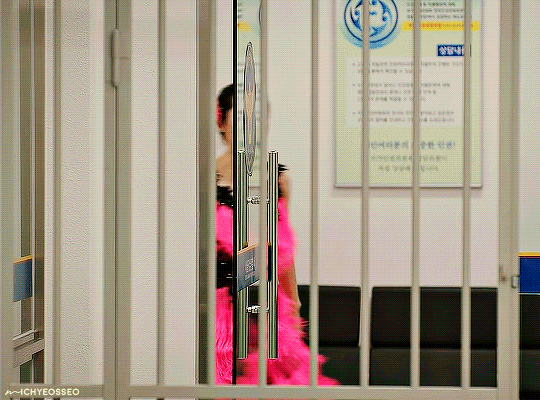

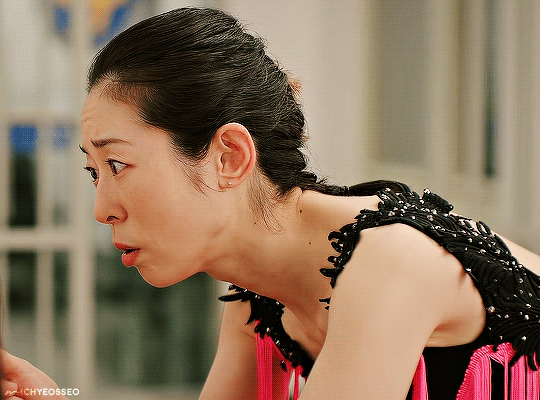
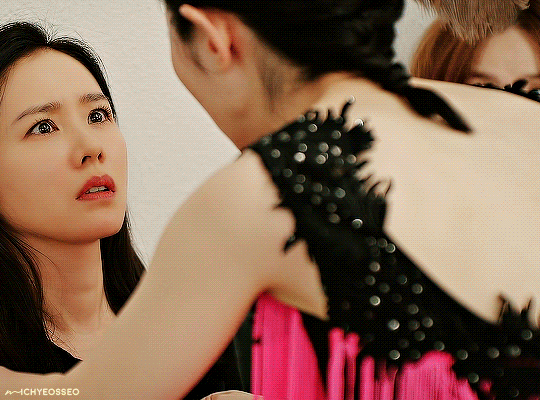

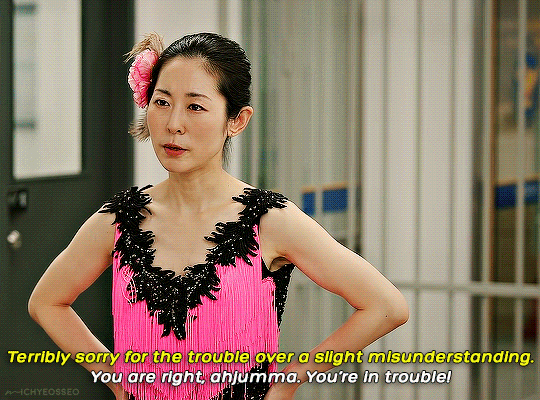

You must be the unni.
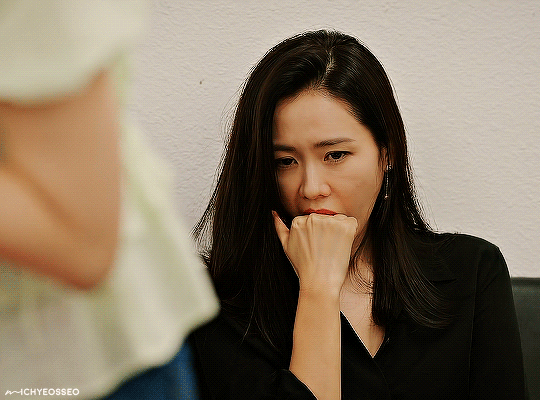
#kdramaladies#kdramaedit#kdrama#thirty nine#kang mal geum#son ye jin#jeon mi do#kim ji hyun#서른 아홉#dancesport kween let's go#she's so tiny but the thundering question of who tf beat up her (baby) sister#chanyoung pacifying mihyun unni with tiny smiles#juhee about to cry#(imo she's the favorite - gurl called mihyun for backup the moment they were hauled in... plus the greetings earlier)#and then there's mijo... lmfao
238 notes
·
View notes
Photo


「열에 아홉 ❀ Do not edit in any way」(1, 2)
#jhope#hoseok#bts#bangtan#p:fantaken#ev:concert#lotte family concert 19#190811#열에 아홉#hm not sure about this layout..
49 notes
·
View notes
Text
White T-Shirt
Bio; Childhood trauma shapes everyone differently, whether it makes you stronger, weaker or just not the same. Yeona knows all about that, having pursued dance to escape the abuse that she had faced at home. Now 20 years old and in college, she is finally able to be independent and feel safe. Struggling with her issues alone has been difficult for her, but she is grateful for the friendships that she has made since leaving her family home. Though she seems happy to her friends and her peers, Yeona carries burden and secrets that she is afraid to share.
Word count; tbc
Warnings; at the start of every chapter, will have mature themes further into the story.

Masterlist; below the cut.
Chapter 1: 하나
Chapter 2: 둘
Chapter 3: 셋
Chapter 4: 넷
Chapter 5: 다섯
Chapter 6: 여섯
Chapter 7: 일곱
Chapter 8: 여덟
Chapter 9: 아홉
Chapter 10: 열
Chapter 11: 열 하나
Chapter 12: 열 둘
#fanfic#fan fiction#kpop fanfic#Shinee#Shinee fanfic#Jonghyun#Kim Jonghyun#Jonghyun fanfic#Kim Jonghyun fanfic#fanfic series
13 notes
·
View notes
Text
Numbers in Korean pt 1
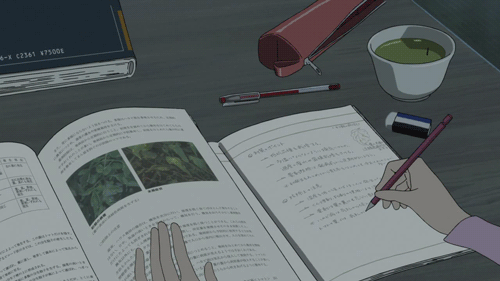
There’s two numeric systems in Korean, which are used in different occasions depending on what you are talking about. There’s Native Korean numbers and Sino-Korean numbers, which are derived of Chinese.
Native Korean Numbers
Counting things/people
Telling the time (only hours)
Age
하나 - 1
둘 - 2
셋 - 3
넷 - 4
다섯 - 5
여섯 - 6
일곱 - 7
여덟 - 8
아홉 - 9
열 = 10
To count from 11 and further, you simply add the numbers to each other (11= 10 + 1)
열하나 - 11
열둘 - 12
열셋 - 13
스물 - 20
스물하나 - 11
스물둘 - 12
서른 - 30
마흔 - 40
쉰 - 50
예순 - 60
일흔 - 70
여든 - 80
아흔 - 90
Examples:
스물한 살이에요. - I am twenty one years old.
동생이 셋 있어요. - I have three younger siblings.
#i'll make another post with sino korean numbers#if you find a mistake please tell me#korean#korean langblr#korean vocab#korean grammar#korean vocabulary#kvocab#kgrammar#langblr#langblog#learning languages#languages#polyglot#multilingual#foxlanguages
62 notes
·
View notes
Text
Korean Counters
Yesterday I learned about Korean counters and let me tell you: I don’t think I’ll ever be able to remember them. Because in Korean you need to use different counters for counting different things. In both English and German, you just count people/animals/things like this: 1 person, 2 people, 3 people, 4 people, etc. (1 Person, 2 Personen, 3 Personen, 4 Personen, etc).
In Korean, the counter for people is “ 명 “. This goes for all words that are people. Like students, teachers, doctors, taxi drivers, etc. They all use the counter “ 명 “. For example, 2 people means 사람 두 명. Easy, right? Now let me tell you that there seems to be a different counter for literally everything.
Here’s the most commonly used counters:
Things – 개
People – 명
Animals – 마리
Slices – 조각
Books – 권
Bottles – 병
Clothing – 벌
Days – 일
Months – 월
Years – 년
But there’s probably like 3 times this many counters alltogether. But because Koreans themselves often can’t think of the correct counter for something rando at the top of their head, they just tend to use the counter “ 개 “ instead of less commonly counters as well.
So if all fails and you just can’t think of the correct counter to use for a certain thing, then it’s perfectly fine to just use “ 개 “ as a counter.
Now, to use these counters, it goes like this: Noun + Number + Counter. It’s pretty easy actually. The numbers 1, 2, 3, 4 and 20 change a bit for easier pronounciation.
1 = 하나 → 한
2 = 둘 → 두
3 = 셋 → 세
4 = 넷 → 네
20 = 스물 → 스무
Let’s, again, use the word 사람 (people) and the counter 명.
1 person = 사람 한 명
2 people = 사람 두 명
3 people = 사람 세 명
4 people = 사람 네 명
5 people = 사람 다섯 명
6 people = 사람 여섯 명
7 people = 사람 일곱 명
8 people = 사람 여덟 명
9 people = 사람 아홉 명
10 people = 사람 열 명
20 people = 사람 스무 명
For things other than people, just change the noun & add the right counter instead of 명.
#personal#korean#korean language#language learning#learning#studying#study#studyblr#langblr#korean langblr#ttmik#kgiu#korean grammar#study inspiration#text#korean counters#grammar
110 notes
·
View notes
Text

HOW TO TELL YOUR AGE IN KOREAN
Visit koreanstudyjunkie.com
Simplified Explanation:
Just Add -살
Age (In Native Korean Numbers) +
살입니다/살이에요/살이야
Example:
저는 열 여덟살입니다!
I am 18 years old!
Questions You Might Encounter:
몇 살이에요? (Polite/Casual)
나이가 어떻게 되세요? (Formal)
연세가 어떻게 되세요? (Honorific)
살 vs 세
살 and 세 have the same meaning, but there is a difference in when to use it and who to use it with. We use 세 when we talk about an elder person's age and 살 is used when talking about oneself, younger people, & friends.
세 is only used when you ask about and talk about someone's age older than you.
So you can say your age like this:
I am 20 years old.
나는 20(스무)살이다
세 Is used with sino-korean numbers only and 살 Is used with native-korean numbers only.
Also, for using 세 :
Only use 세 for someone's age older than you or someone who you meet at first.
Example:
1: How old are you?
연세가 어떻게 되세요.
2: He is 70 years old.
그는 70(칠십)세 입니다.
IMPORTANT RULES TO KNOW:
For Number 1-4 & 20, the form of the number changes If another word comes after it.
(하나 becomes 한, 둘 = 두, 셋 = 세, 넷 = 네, 스물 = 스무)
Example:
두 살이다 = to be 2 years old
수무 살이다 = to be 25 years old
수물 doesn't change if another number is after it (For Example: 수물하나, 수물다섯, 스물일곱, etc.) But If the number is followed by the counter 살 and the numbers 1-4 are after it, then it becomes 수물두 살, 스물 네 살 and so on.
🚨"CULTURAL" NOTES TO
BE AWARE OF:
*about age and korean culture
Age is particularily important in Korean culture. Close relationships (brother/sister/friend types of relationships ) are usually established among people In the same age or similar ages to you. When Koreans get closer, their relationship is based around age. For the sake of titles like 언니/오빠/누나/동생. So, asking age is usually to figure out who is older.
If you're not in a situation where you are trying to develop this kind of brother/sister/friend relationship, asking for someone's age is rude. Asking age to a person who is clearly older than you is also really rude for this reason.
Age is private.
So you might want to ask In more indirect ways, for example asking what year they were born In
A Common Way:
무슨 띠에요?
(what animal of year were you born?)
Another way is asking the birth year:
몇년 생이신가요?
(what is your birth year?)
More Forms:
몇년 생이에요? (Polite/Casual)
몇 년생이세요? (Formal)
Even when speaking to younger people, If you want to be sure to not be rude It's good to opt for questions like these instead.
To elders, you are not going to be developing this type of relationship. So you shouldn't ask their age but If for some reason you ask be sure to use the honorific question that I showed earlier.
List Of Native Korean Numbers (1-99)
*reminder: the native/pure korean number system only goes up to 99. After that, numbers 100 and up are sino-korean numbers
하나 - 1
둘 - 2
셋 - 3
넷 - 4
다섯 - 5
여섯 - 6
일곱 - 7
여덟 - 8
아홉 - 9
열 - 10
열 하나 - 11
열 둘 - 12
열 셋 - 13
열 넷 - 14
열 다섯 - 15
열 여섯 - 16
열 일곱 - 17
열 여덟 - 18
열 아홉 - 19
스물 - 20
서른 - 30
마흔 - 40
쉰 - 50
예순 - 60
일흔 - 70
여든 - 80
아흔 - 90
아흔 아홉 - 99
#한국어#native korean numbers#korean lesson#how to tell your age in korean#ages in korean#korean langblr#korean culture#korean language
144 notes
·
View notes
Text
안녕하세요 여러분
Today's learning 👇
#Unit0lesson5
TODAY i will teach KOREAN NUMBERS TO YOU ALL
IN KOREA PEOPLE USE 2 TYPES OF KOREAN NUMBER ---
:: NATIVE KOREAN NUMBER
:: SINO KOREAN NUMBER
LET'S SEE HOW TO READ THEM:::
[ Korean Numbers 한국 번호 ]
||Native Korean Numbers||
1 - 하나
2 - 둘
3 - 셋
4 - 넷
5 - 다섯
6 - 여섯
7 - 일곱
8 - 여덟
9 - 아홉
10 - 열
11 - ten+one = 열하나
12 - ten+two = 열둘
13 - ten+three = 열셋
14 - ten+four = 열넷
15 - ten+five = 열다섯
16 - ten+six = 열여섯
17 - ten+seven = 열일곱
18 - ten+eight = 열여덟
19 - ten+nine = 열아홉
20 - 스물
30 - 서른
40 - 마흔
50 - 쉰
60 - 예순
70 - 일흔
80 - 여든
90 - 아흔
*📓 NOTE --- DON'T USE ROMANIZATIONS TO READ THESE LETTERS
I WILL SEND THE AUDIO BUT BEFORE THAT I WILL TELL SOMETHING IMPORTANT ABOUT PRONUNCIATION
KEEP IN MIND TO REVISE / LEARN #Unit0lesson4
||Sino Korean Numbers||
The term "sino-korean" is used when a korean word is based on the Chinese language.
1 - 일
2 - 이
3 - 삼
4 - 사
5 - 오
6 - 육
7 - 칠
8 - 팔
9 - 구
10 - 싶
100 - 일백
200 - 이백
300 - 삼백
400 - 사백
500 - 오백
600 - 육백
700 - 칠백
800 - 팔백
900 - 구백
Remember 👇
Hundred - 백 [baek]
Thousand - 천 [cheon]
Ten Thousand - 만 [man]
That's all for today
감사합니다 🙏
2 notes
·
View notes
Text
Level 9 / Lesson 3: 버리다
안녕하세요! Welcome to this new vocab lesson! It’s not going to be a typical list, but you will learn some new vocab and how to use it! We’re going to be talking about the purpose of the verb 버리다. Let’s get started!
버리다
버리다 on its own means “to throw away,” “to leave behind,” or “to abandon.” For instance:
쓰레기를 버리다 = to throw out the trash
But 버리다 can actually be used in conjunction with some other verbs as well. Let’s look at this formula:
[verb stem] + 아/어/여 + 버리다
Adding 버리다 emphasizes the fact that something is completely finished. It is typically used for negative-sounding sentences, as if something unfavorable happened, is completely over with, and cannot be reversed. I’ve looked at some different sources and a lot of them say 버리다 is used when you’re throwing your hands in the air in annoyance or maybe regret. I think some examples would help communicate this!
지갑을 잃어버렸어요. = (Oh sh!t,) I lost my wallet.
책을 잊어버렸어요. = I completely forgot my book (and now I’m pissed).
Take this sentence from Reddit here:
쿠키 하나만 먹고 싶지만 다 먹어버렸어. I wanted to eat only one cookie, but I ate them all.
These communicate regret and/or annoyance, kind of like you completely screwed up by losing your wallet, forgetting your book, or eating all of the cookies, which was not your intention.
Other times, adding 버리다 can communicate a positive tone, or doesn’t even have to add any emotion at all. Sometimes it just emphasizes how something is totally done with. It really depends on the context and on the speaker’s tone!
숙제를 다 끝내버렸어요. = I finished all of my homework.
This could be positive, for example, expressing relief that all your homework is complete. Or it may just be a neutral statement that you did all your homework.
*Note: 버리다 to my understanding can be attached to pretty much and action verb. In terms of spacing, I’ve seen 버리다 attached to verbs with and without a space in between, so I think either way is acceptable (so like you can write either 숙제를 다 끝내버렸어요 or 숙제를 다 끝내 버렸어요 -- someone correct me if I’m wrong!).
Shall we look at some more examples?
남자친구랑 헤어져 버렸어요. = I broke up with my boyfriend. / I completely broke up with my boyfriend. (maybe implying that you’re never going to talk to him again. Could express relief or a more negative emotion depending.)
지수가 내 비밀을 모두한테 말해버렸어. = Jisoo told everyone my secret.
나쁜 기억 지워버리고 싶어요. = I want to totally erase all my bad memories.
내 지갑이 비었는데? 돈을 다 써 버렸나 봐… = My wallet is empty? I guess I spent all my money…
저는 아홉 살때 우리 집 불 태워버려서 가족이 이사했어요. = When I was 9 years old, my house completely caught on fire, so my family moved.
이 수업이 드디어 끝났다. = This class is completely over.
One More Thing: What’s the Difference?
I would say the two most common verbs ending in 버리다 are 잊어버리다 (to forget) and 잃어버리다 (to lose). But you’ll also just see these verbs on their own: 잊다 and 잃다. The difference between the two versions can be a little confusing, so I’m going to explain it!
잊다 and 잊어버리다 are pretty much used the same way but just have a slight difference in nuance. As we saw before, 잊어버리다 has the feeling of “to completely forget” and has a stronger emphasis -- it just sounds a little stronger. Moreover, 잊다 sounds more formal and in many cases less natural, and you won’t hear it as often as 잊어버리다.
잃다 and 잃어버리다, on the other hand, are used depending on what it is that you lost. 잃다 is used for non-tangible things or for people, such as:
직업을 잃다 = to lose a job
친구를 잃다 = to lose a friend (like by death, or maybe you cut that friend off)
기억을 잃다 = to lose your memory (like some K-drama characters do) 희망을 잃다 = to lose hope
잃어버리다, contrarily, is used for tangible objects that you’ve misplaced:
지갑을 잃어버리다 = to lose your wallet
열쇠를 잃어버리다 = to lose your keys
Hope that all makes sense! Anyways, you’ve finished reading the whole lesson! 오늘의 레슨을 읽기 다 끝내버렸어요! Have any questions? Feel free to ask me!
If you want to practice writing and reading Korean with others, join my Discord chat here and my Tumblr chat here! Don’t forget to follow my Instagram @apopofkorean too!
Want to expand your Korean vocabulary and get closer to fluency? Get Drops Premium using my affiliate link!
If you would like to donate and support my studies, check out my Ko-Fi! Thank you for your generosity! See you next time! 다음에 봐요!
#korean#korean language#study korean#learn korean#studying korean#learning korean#study#learn#hangul#langblr#korean langblr#new langblr#korean grammar#korean teacher#studywithme#learnwithme#한국어#한국어 공부하기#한국어를 공부하기#한국말 공부하기#공부하기#한국말#한국어 공부#한국말 공부
87 notes
·
View notes
Text
VOCAB - Learn Korean with BTS (방탄소년단): EP. 8 - 숫자: 하나, 둘, 셋
DISCLAIMER: My way to study will depend on each lesson:
- If I already know the subject then I will use it as a way to get vocabulary.
- If I don’t know the subject then I will take notes as if it was a normal lesson.
My method (feel free to use another that is better or easier for you):
1. watch the video twice with English or Spanish subtitles.
2. watch the video twice with the Korean subtitles.
3. watch the video twice without any kind of subtitles (the videos are 3 mins long so it’s not tiring to do this).
This lesson covers the Native Korean Numbers, we already saw those, so if you want a deeper look in them you can check it here
1. From 1 to 10:
하나: 1 (one)
둘: 2 (two)
셋: 3 (three)
넷: 4 (four)
다섯: 5 (five)
여섯: 6 (six)
일곱: 7 (seven)
여덟: 8 (eight)
아홉: 9 (nine)
열: 10 (ten)
2. Usage:
You can use these numbers when...
1. Telling the time. 예: 아홉 시구나 (it’s 9 o’clock)
2. Counting the number of times. 예: 연속 여섯 번 성공 봤어요? (did you see those 6 wins in a row?)
3. Counting songs. 예: 온전히 스물여섯 곡을 하는 간 처음입니다 (it’s the first time we are doing the full 26 songs)
4. Counting people. 예: 열 명 나왔습니다! (there are 10 people)
5. Counting the number of things. 예:
- 일곱 개의 상이 지금 각자 멤버 손에 있습니다 (7 trophies are in the hands of each member)
- 단어 다섯 개를 보고 문장 만들기 (make a sentence using 5 words)
- 하나 버린다고 해도 하나 더 있는 거 알고 있다 (I know there is another one even if you throw one -bag- away)
6. Talking about age. 예: 열다섯 살 때 봤던 정국이가 벌써 성인이 됐습니다
7. Taking a picture. 예: 하나, 둘, 셋 ...
3. 어휘:
한명: (contraction of 그러하면) then, and
잊다: to forget
마무라되었네요:
→ 마무리하다: to finish, complete, conclude
→ 되다: to become, get, turn into
잠깐: for a moment
준비: preparation
친절하다: to be kind, considerate
사용: to use
설명서: manual, instructions
모였죠 → 모이다: to gather, get together
음원: sound source (music file)
발매: sale, release (of a product)
연속: continuation, in a row
성공: success, hit, achievement
횟수: number of times
곡: piece of music, tune, melody
온전히: fully, entirely, soundly
→ 온전하다: to be whole, intact, sound
각자: each one, individually
트로피: trophy (konglish)
현실: reality, actuality
역시: as expected, also
월드스타: world star (konglish)
클래스: class, world class (konglish)
주어진: to be given, allowed
벌칙: penalty
싫다: to hate, dislike
뽑다: to pull, select, choose
먼약 → 멀다: to be far, distant
엄청: very much
진지하다: to be serious
밀당: push and pull
중인: many people, public, multitude; a principle cause, a prime factor
버리다: to throw away, abandon
벌써: already, long ago
성인: adult, grown-up
참: really, truly
source: “Learn Korean with BTS”, Weverse - BigHit Entertainment
Happy Learning! ^^

#korean#korean language#korean learning#korean verbs#korean nouns#korean vocab#korean grammar#korean numbers#korean langblr#kr#bts#bts jin#bts kim seokjin#bts seokjin#bts series#bts min yoongi#bts yoongi#bts jhope#bts hoseok#bts jung hoseok#bts rm#bts kim namjoon#bts namjoon#bts jimin#bts park jimin#bts v#bts kim taehyung#bts taehyung#bts jungkook
71 notes
·
View notes
Text
이사 (Moving On) [lyrics+vocab]
As requested by anon!
youtube
Ayo SUGA
3년 전 여기 첨 왔던 때 기억해?
왠지 형이랑 나랑 막 치고박고 했던 때
벽지도 화장실도 베란다도 다 파란 집
그 때 난 여기가 막 되게 넓은 집인 줄 알았지
But 내 야망이 너무 커졌어
그리 넓어 보이던 새 집도 이제는 너무 좁아졌어
17평 아홉 연습생 코찔찔이 시절
엊그제 같은데 그래 우리도 꽤 많이 컸어
좋은 건 언제나 다 남들의 몫이었고
불투명한 미래 걱정에 항상 목 쉬었고
연말 시상식 선배 가수들 보며 목 메였고
했던 꾸질한 기억 잊진 말고 딱 넣어두자고
우리의 냄새가 나 여기선
이 향기 잊지 말자 우리가 어디 있건
울기도 웃기도 많이 했지만 모두 꽤나 아름다웠어
논현동 3층, 고마웠어
Ayo Suga, do you remember when we first came here 3 years ago?
That time when we used to beat each other up
The house where wallpapers, the bathroom and the veranda were all blue
Then I thought that it was a really big house
But my ambitions grew a lot
The new house that looked so big has become a lot smaller
17pyeong, 9 trainees like small kids
It seems like it was yesterday but we’ve grown up quite a lot
Good thing were always somebody else’s
We couldn’t speak because of worries about the uncertain future
We would choke up looking at sunbaes during the award ceremonies
Let’s not forget those pitful memories and keep them
This place has our smell, let’s not forget it wherever we may be
We cried and laughed a lot but it was all quite beautiful
Thank you, 3rd floor Nohyeon-dong
➼ 전 - before
➼ 첨 (shortened) = 처음 - first
➼ 때
➼ 왠지 - for some reason
➼ 치고박고하다 - to beat each other
➼ 벽지 - wallpaper
➼ 화장실 - bathroom
➼ 베란다 - veranda
➼ 파랗다 - to be blue
➼ 되게 - really, a lot
➼ 넓다 - to be wide, big
➼ 야망 - ambition, aspiration
➼ 새 - new
➼ 좁다 - to be narrow, small
➼ 평 - about 3,3m² (so 17평 is about 56m²)
➼ 연습생 = trainee
➼ 코찔찔 - snot, 코찔찔이 시절 = when you were a kid
➼ 꽤 - quite
➼ 몫 - share, portion
➼ 불투명하다 - to be uncertain, unclear
➼ 미래 - future
➼ 걱정 - worries
➼ 목이 쉬다 - to have a frog in your throat/to have difficulty speaking
➼ 연말 시상식 - end-of-the-year awards
➼ 선배 가수 - singers who debuted before you
➼ 목메다 - to be choked up
➼ 꾸질하다 - to be pitful
➼ 넣어두다 - to stash, keep
➼ 냄새가 나다 - to smell (neutral or negative)
➼ 향기 - a scent (pleasant)
➼ 노현동 - Nohyeon-dong in Gangnam-gu where the boys had their dorm
➼ 3층 - third floor
➽ ~ㄹ/을 줄 알다
➽ ~아/어지다
➽ nominalizator 기
이사 가자 정들었던 이곳과는 안녕
이사 가자 이제는 더 높은 곳으로
텅 빈 방에서 마지막 짐을 들고 나가려다가 잠시 돌아본다
울고 웃던 시간들아 이젠 안녕
Let’s move, bye to this place that we grew fond of
Let’s move, let’s go to a higher place now
I look back for a while as I take the last box from the empty room
To the times we cried and laughed, goodbye now
➼ 이사 - moving (from a house)
➼ 이사(를) 가다 - to move
➼ 정 - affection (a pretty complex Korean concept of love/affection)
➼ 정이 들다 - to grow fond of
➼ 곳 - place
➼ 높다 - to be high
➼ 텅비다 - to be completely empty
➼ 방 - room
➼ 짐 - stuff, boxes, baggage,...
➼ 들다 - to hold
➼ 나가다 - to go out
➼ 잠시 - for a while
➼ 돌아보다 - to look back
➽ ~려고
➽ ~다가 is used when you stop in the middle of one action to do another action in this case but has other usage as well.
짐을 들고 나가려다가 잠시 돌아본다 = I was holding stuff and was going to go out but then I stopped and looked back
집에 가다가 친구가 연락해서 친구집에 놀러 갔어요. = I was going home but my friend contacted me and I went to hang out to their place.
3년의 삶 참 짧고도 길었지
많은 일들이 있고 많은 추억의 기억이
막 떠오르곤 해, 떠날 때가 되니까
사용의 흔적들 like 통장내역 크레딧카드
좁은 평수만큼 더 뭉친 점도 있었고
Fight right here 치고 받기도 몇번
그래서인지 고운 정 미운 정 쌓이고 쌓였어
먼지 마냥, 이젠 치워지겠지
처음보단 짐도 늘고
처음보단 내 스스로 가진 것도 늘었어
이젠 자부심을 딱 들고
더 큰 세상 큰 꿈을 나 바라보겠어
새 출발, 새 시작 어떤 식으로 또 꾸밀 지 기대되는 시간
짐 날라, 위치 잡아, 먼지 닦아
끝나고서는 수고의 짜장면 하나
That's right
The 3 years were so short yet so long, many things happened and I tend to remember many memories because it’s time to leave
Traces like bank statements and credit cards
We got closer to each other because the house was small
Fight right here, we hit each other a few times
Maybe that’s why I have so much love and hate now but now it will be swept away like dust
There’s more stuff than in the beginning, I myself have more things
I’ll take my pride and I’ll look at a bigger world and a bigger dream
A new start, a new beginning
A time of anticipation of how we’ll decorate the new place
Move the boxes, get the location, swipe the dust
When we’re done let’s grab a jjajangmyun for hard work, that’s right
➼ 삶 - life
➼ 짧다 = to be short x 길다 = to be long
➼ [기억, 추억] 떠오르다 - to remember [memories]
➼ 떠나다 - to leave
➼ 사용의 흔적 - traces of using sth
➼ 통장내역 - bank account statement
➼ 크레딧카드 - credit card
➼ 평수 - floor space
➼ 뭉치다 - to hold together
➼ 치다 - to hit
➼ 받다 - to receive (the hitting in this case)
➼ 곱다 - to be pretty
➼ 고운 정 x 미운 정 = love x hate but in the meaning of 정.
➼ 쌓이다 - to pile up
➼ 먼지 - dust
➼ 치우다 - to clear away
➼ 늘다 - to increase
➼ 스스로 - on my own
➼ 자부심 - pride, self-esteem
➼ 식 - way, manner
➼ 꾸미다 - to decorate
➼ 기대되다 - to be anticipated
➼ 나르다 - to carry, transport
➼ 위치 - location
➼ 닦다 - to swipe away
➼ 수고 - hard work
➼ 짜장면 - black bean noodles, usually you eat it on the day you move, it’s a kind of a tradition in Korea
➽ ~곤 하다
➽ 보다
난생 처음 엄마의 뱃속에서 나의 첫 이사 날을 세곤 했어
희미한 기억 나의 이사의 대가는 엄마 심장의 기계와 광활한 흉터였어
2010년 그 해 겨울 대구에서 철없던 내가 이 세상의 크기를 재곤 했어
상업적이란 집으로 이사간 대가는
욕 바가지 돈따라기라며 날 향한 손가락질
이처럼 이사는 내게 참 많은 걸 남겼지
그게 좋던 싫던 내 삶 속에서 많은 걸 바꿨지
내 삶은 월세 나도 매달려 알어?
내 자존심은 보증금 다 건 채 하루를 살어 uh
그래서 다시 이사 가려고 해
아이돌에서 한 단계 위로 꿈이 잡히려 해
이번 이사의 손 없는 날은 언제일까
빠른 시일이면 좋겠다
For the first time in my life in my mother’s womb
I counted the days until my first move
A vague memory, the cost of my move was the machine in my mom’s heart and a big scar
In 2010 winter in Daegu, the immature me measured the size of this world
The price for moving into a “commercial” house was getting sweared at for wanting to follow money
Moving left me many things like this and both good or bad, it changed many things in my life
My life is paid monthly, I barely hang on too, you know?
The deposit money is my pride and I live risking everything
That’s why I want to move again
I’m planning on setting a dream beyond “idol”
When would be a good day to move this time, I hope it’s soon
➼ 난생처음 - a first in one’s life
➼ 엄마 - mom
➼ 배 - stomach
➼ 이사 날 - moving day
➼ 세다 - to count
➼ 희미하다 - to be vague
➼ 대가 - cost
➼ 기계 - machine
➼ 광활하다 - to be vast, big
➼ 흉터 - scar
➼ 해 - year
➼ 철없다 - to be immature
➼ 크기 - size
➼ 재다 - to measure
➼ 상업적 - commercial
➼ 욕 바가지 - swearing, blaming
➼ 돈 따라기 - chasing money
➼ 손가락질 - pointing fingers
➼ 남기다 - to leave
➼ 바꾸다 - to change
➼ 월세 - monthly rent
➼ ��달리다 - to hang on, struggle
➼ 자존심 - pride
➼ 보증금 - deposit
➼ 걸다 - to risk
➼ 단계 - step, stage
➼ 손 없는 날 - a day without a “guest” - a Korean superstition about a ghost named “guest” so you would want to pick a day when this ghost is inactive for moving
➼ 시일 - date
➽ ~ㄴ/은 채
Everyone's afraid of changes
Staying, moving on, staying, moving on
We keep repeating the same things again and again
I guess that's life, I'm afraid
Old or new, new or old, that isn't really important
What's important is, that we still breathe and live in the same place
So let's move on
#korean vocab#bts lyrics#moving on#korean langblr#move#hyyh on stage#bts#learn korean#bulletproof korean#이사#내 꺼#hyyh#ㅂㅌㅅㄴㄷ#my translations seem rly awkward so please bear with me hehe#this performance stays superior#tae staring at hobi when his part comes is literally me#im a ho for hyyh and run era outfits and ot7s hair colors#it was a perfect era#i'm tearing up at yoongi's verse ;;#also namjoon changed the outro during the concert..!
58 notes
·
View notes